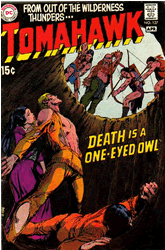
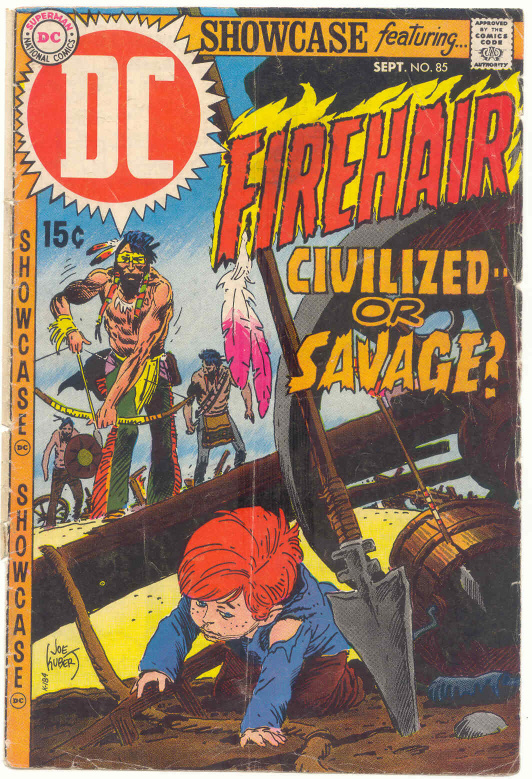
Call me savage!
David A. Yeagley (alleged Comanche), Make More Indian Warrior Images, Grand Forks Herald, 12/2/01


Call me savage!
David A. Yeagley (alleged Comanche), Make More Indian Warrior Images, Grand Forks Herald, 12/2/01
Those death-dealing Indians
The Indian as warrior is one of the most common Native stereotypes. Though most tribes did (and do) have warriors, they also had traders, farmers, healers, craftspersons, storytellers—the whole range of human activity. Describing traditional Indians as warriors when many led peaceful lives as farmers or hunters and gatherers is a gross distortion of the record.
Nevertheless, many people, including Indians themselves, have seized upon the warrior claim to justify their actions. Warriors aren't accountable to society; they don't have to deal with the painstaking work of building an infrastructure or running a government. Like John Wayne, they can shoot first and ask questions later.
America lionizes its warriors, and the Indian warrior is no exception. But consider the downside of this stereotypical image. Indians are warriors...so their religions and governments must consist of grunts, war-whoops, and spear-rattling. Indians are warriors...so they have no place in a modern, techno-savvy, space-age society. Indians are warriors...so we had no choice but to fight them and force them into concentration camps (reservations). We couldn't have those unstoppable killing machines roaming among our helpless women and children—raping and scalping them—could we?
For various aspects of the "Indian as warrior" stereotype, see:
Savage Indians
Indians in the military
Team names and mascots
Fighting Sioux vs. Fighting Irish
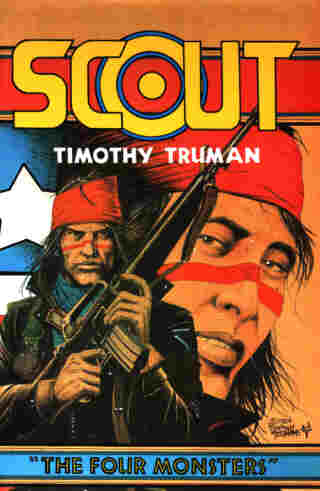
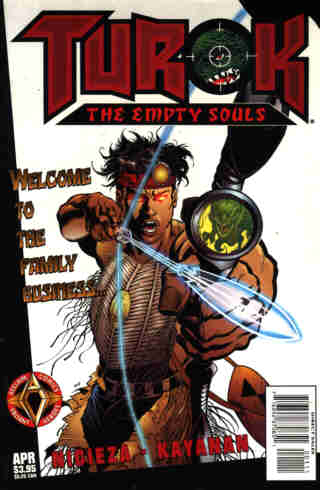
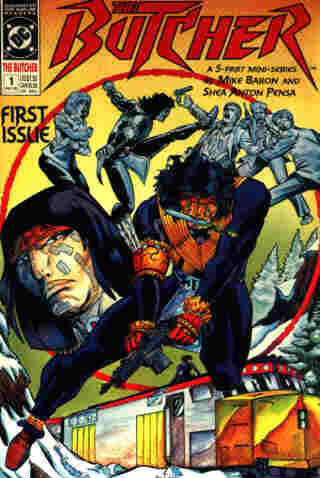
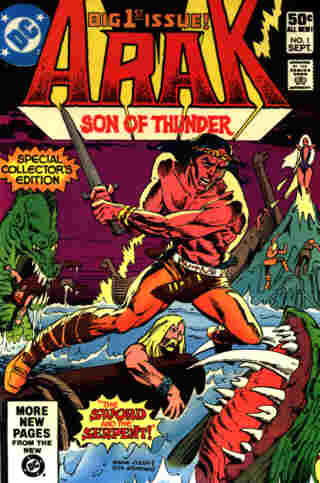
Real men have guns?
More from Yeagley the self-proclaimed warrior, savage, and mascot:
Americans nowadays seem to be forgetting what it means to be a warrior. They don't value preparedness. They think the government will always be there to defend them from enemies and criminals.
But that's not the Indian way. That's not the way of a man.
David A. Yeagley, Warriors and Weapons, FrontPageMagazine.com, 1/26/01
Comanches—or at least this semi-Comanche—seem to be forgetting that not all Indians were warriors. The Hopi, or "people of peace," are a prime example. They fought fiercely when enemies attacked, but seldom instigated battles. More often they "fought" by retreating to their mesa tops or asking allies to protect them. When the US came to take their children to boarding school, they "fought" with passive resistance. They went to jail rather than "fight or die."
The Hopi also enlisted in greater-than-average numbers to tackle our foes in World War I and II. Afterward they returned to their quiet lives as farmers and ranchers. They've survived this way for at least 800 years without being confined or relocated by any government. That's a record no Comanche group can match.
We can find plenty of Indians in the historical record who made peace, not war. From Pocahontas, Massasoit, and Squanto early on to Black Kettle, Little Raven, and Kicking Bird during the Indian Wars, many Natives cooperated with Euro-Americans and sought peaceful coexistence. Warriors from Tecumseh to Red Cloud embraced peace when war failed to achieve their goals. When compelled to move to a reservation, the famed Nez Perce Chief Joseph didn't throw his people into suicidal battle; he sensibly tried to escape to Canada. By the time Chief Seattle encountered white men, notes a Post-Intelligencer article, he was "was a venerable leader respected for his peaceful ways, not his prowess at war."
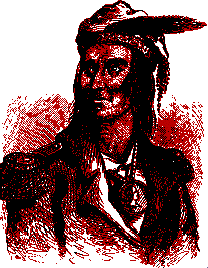
Indians armed with intelligence
Even today, many Native people disagree that being Indian means being a weapon-toting warrior. For example:
I am anti-guns, the fewer guns in this world, the safer I feel. What are guns used for? Defense? Security? Sport? Ultimately, they are designed to kill. Perhaps these people will feel differently when guns somehow touch their lives or the lives of someone they love.
Anne Thundercloud (Ho-Chunk), e-mail
We will win this war. Not with arrow or bow or knife, nor with club or our bare hands, but with the strength that has always been within us, the strength of this land, the strength of our peoples who you can never kill.
Svhyeyi Aga aka Evening Rain, Web posting
This information is so valuable, this is the weapon—it's not guns or rocks, it's information. It empowers us.
Victor Rocha (Pechanga), article
DJ Vanas (Odawa), a motivational speaker and author, describes the difference between a "warrior" who's ready to shoot and one who's ready to fight in his essay 21st Century Warrior. Warriors are people who battle for what they believe in without necessarily using fists or guns. As Vanas puts it:
In the Sun Dance, I learned what the warrior path was truly about. It had nothing to do with what I had seen in movies, heard in music, or read in books. It wasn't about being destructive, being the toughest person in the neighborhood, or any media-stained image....The warrior concept is simply taking our own talent and ability and developing it so we can serve and defend others. The warrior's goal was to become an asset to the village they served. The warriors of the past like Pontiac, Crazy Horse, Chief Joseph, and Osceola were warriors not only because of their exploits in battle, but because they served their people the best way they knew how and spent their lifetimes becoming assets to their village. Today, your "village" could be your family, community, country, clients, or any other group you serve.
So what does this tell us? That one can be brave and heroic without wielding a weapon? That the warrior's way isn't the only way, even for Indians? That peace, not war, is the path to long life? All of the above?
Except for Jesus, Gandhi, and Martin Luther King Jr., Americans would have trouble naming someone who advocated peace. But these peacemakers proved there's more to being a man than brandishing a phallic substitute. They succeeded where weapons wielders arguably failed, and inspired nations to change.
So let's not glorify "might makes right" too much, shall we? In the long run, to put it bluntly, the pacifist kicks the warrior's butt. Or as Robbie Robertson (Mohawk) and the Red Road Ensemble sing in their song "Ghost Dance":
You don't stand a chance against my prayers
You don't stand a chance against my love
They outlawed the Ghost Dance
But we shall live again, we shall live again
More on Indians as warriors
Lakota thinks mascots honor him
Navajo pair is BRAVE
Billy Mills defines "warrior"
Sitting Bull defines "warrior"
Glorifying the warrior, not the war
Famous Native American Indian Chiefs, Leaders, and Warriors
Related links
Some arguments for gun control
Winning through nonviolence
Warlike Indian cultures
America the warrior society
America's cultural mindset
|
. . . |

|
All material © copyright its original owners, except where noted.
Original text and pictures © copyright 2007 by Robert Schmidt.
Copyrighted material is posted under the Fair Use provision of the Copyright Act,
which allows copying for nonprofit educational uses including criticism and commentary.
Comments sent to the publisher become the property of Blue Corn Comics
and may be used in other postings without permission.